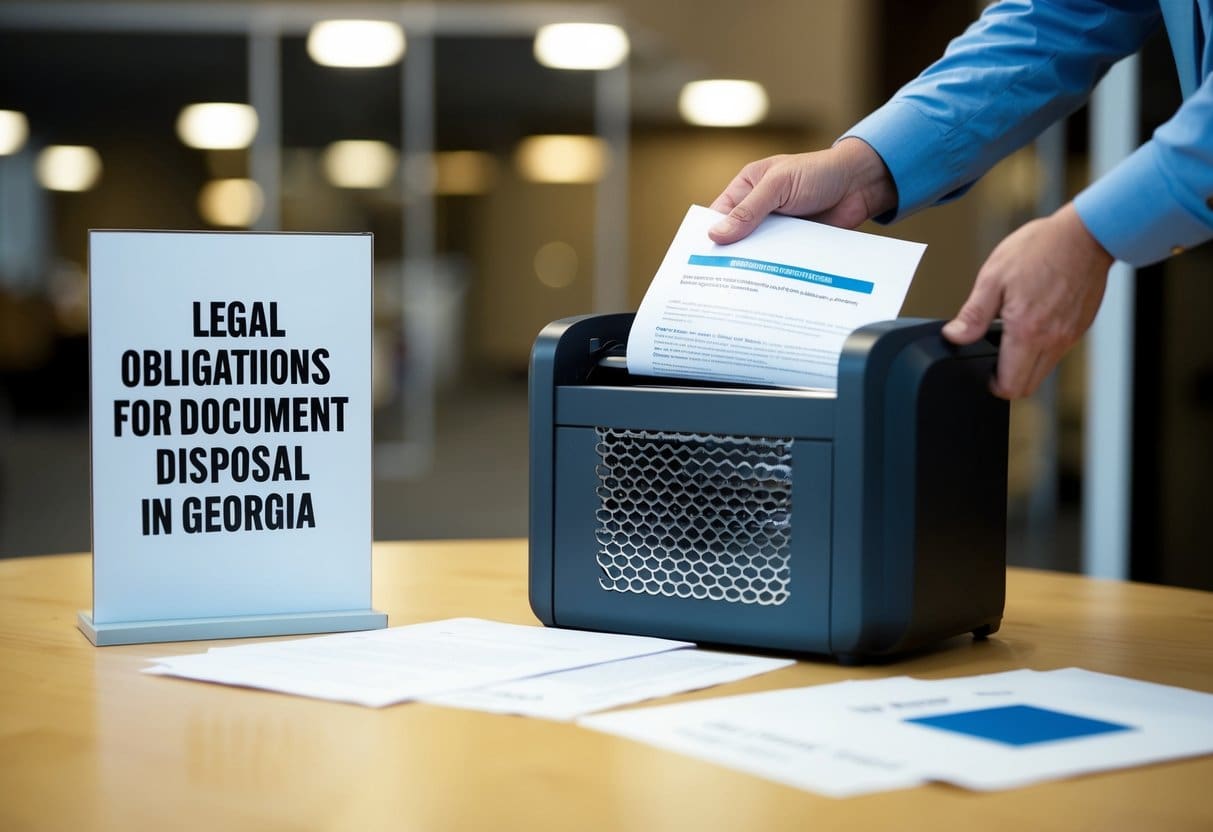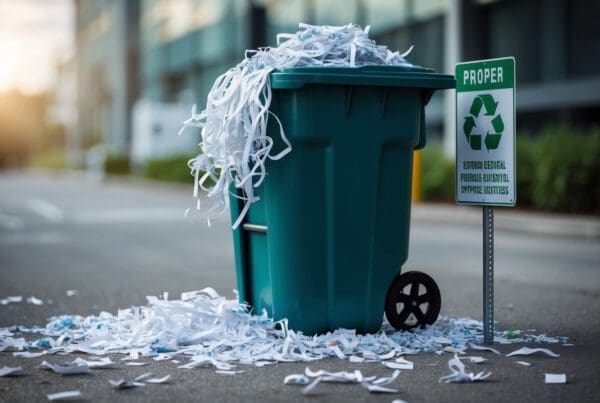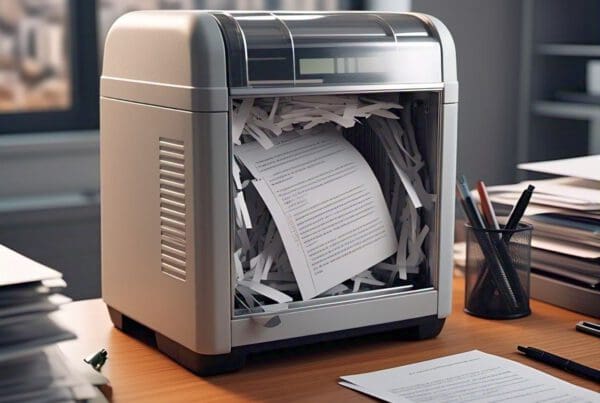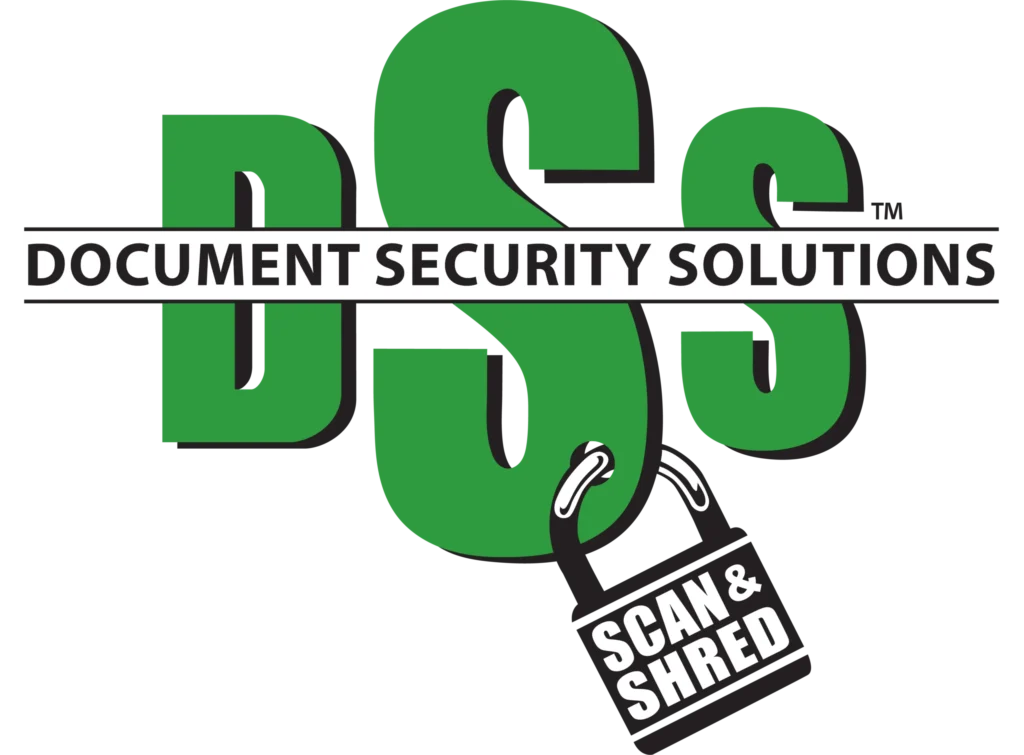Understanding Georgia’s Legal Framework for Document Disposal

In Georgia, businesses must follow specific laws for document disposal. Ensuring proper records management through understanding local laws helps in maintaining compliance and protecting sensitive information.
Georgia Law and Document Destruction
Georgia law requires that businesses handle document destruction responsibly. This includes shredding or incinerating documents to safeguard information. Failure to comply can lead to penalties. Compliance is essential for protecting against identity theft and data breaches.
It is our responsibility to ensure that our company’s records are disposed of according to these legal standards. We need to implement proper disposal methods and maintain awareness of any changes in local laws. Understanding these regulations helps us avoid legal consequences.
Classification of Business Records
Business records must be classified correctly to determine proper disposal methods. Records can include financial documents, employee information, and client data. Each type of record may have different guidelines for retention and destruction. For instance, tax documents might need to be kept for a set number of years before destruction.
Recognizing and categorizing records helps us follow both state and federal regulations effectively. Regular audits of our records management process ensure that we’re compliant with Georgia’s requirements. By properly classifying records, we can ensure efficient and secure disposal.
Executing Compliant Document Disposal Practices
In Georgia, disposing of documents properly is necessary to protect both business and personal information. It’s important to know secure methods for document destruction and how to manage the disposal of business records effectively.
Methods for Secure Document Destruction
Choosing secure destruction methods is crucial for protecting sensitive data. Shredding is one of the most effective ways to ensure documents are irretrievable. We can use cross-cut shredders to enhance security, making documents difficult to reconstruct. Some businesses opt for professional shredding services, which handle large volumes and ensure compliance with privacy laws. We must verify that these services provide a certificate of destruction, confirming documents are disposed of correctly.
Another method is pulping, where paper is turned to pulp, effectively destroying the documents. It’s important for us to choose a method that aligns with our business needs and legal obligations.
Managing Disposal of Business Records
Proper record disposal involves understanding document retention policies. We need to keep documents for a specific time before disposal, based on legal and business requirements. Different types of records may have varying retention periods.
Creating a disposal schedule can help us systematically handle records ready for destruction. We should ensure that personal information is handled with extra care, using secure disposal methods to prevent data breaches.
Ensuring compliance includes training employees on disposal practices and documenting the disposal process. This not only helps in audits but also protects us from potential legal issues related to improper disposal.
Protecting Sensitive Data During Disposal

When discarding documents, we must ensure that sensitive data is securely handled to prevent identity theft and unauthorized access. This involves careful management of personal and business information to keep it safe during disposal.
Handling Personal Identification Information
We need to pay extra attention to personal identification information. This includes details like social security numbers, passport numbers, and driver’s license numbers. Special care is needed for documents containing date of birth and personal identification card numbers. Personal information can sometimes even include fingerprints. To protect this data, documents should be shredded or otherwise destroyed so that the information cannot be read or reconstructed.
For digital files, simply deleting is not enough. We must use software designed to permanently erase data. It’s important to ensure all records of personal data, such as tax returns and medical information, are securely disposed of following these guidelines.
Securing Confidential Business Information
Business documents with confidential information, like covered documents and disability information, need secure disposal as well. Company secrets and client data often contain sensitive material. Use a secure method of shredding for any papers containing this type of information.
Digital files need to be permanently erased from all devices and storage. It is essential to maintain a routine schedule for destroying outdated documents. Ensuring that our disposal methods are compliant with regulations helps maintain trust and protects against data breaches.





